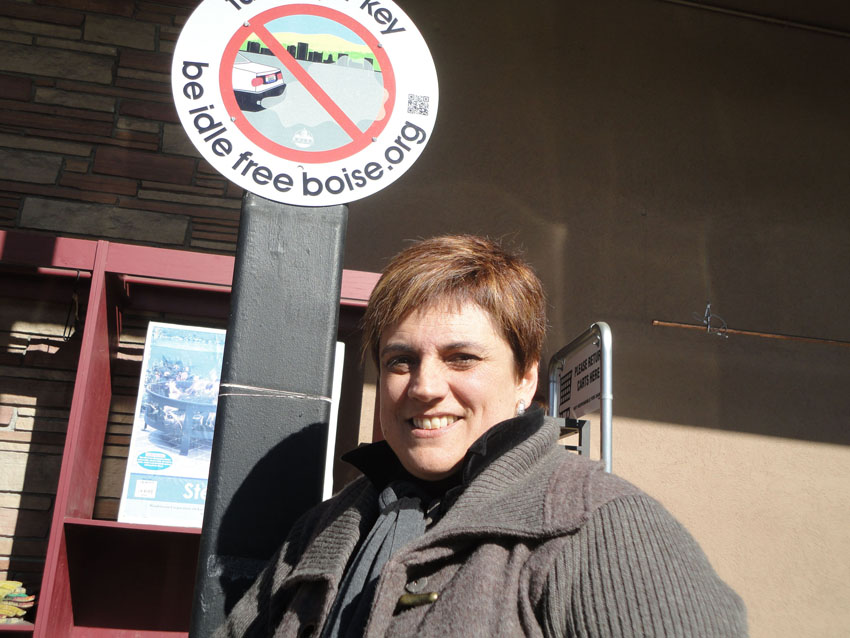Joseba Etxarri. She studied Philology in Donostia and specialized in Translation in the US. She came to the University of Nevada, Reno in 1988, where she taught Basque and later Spanish. She did a post-doc at the University of Iowa, finally making Boise her residence where she is director of the Minor in Basque Studies at Boise State University.
-The Basque Minor, a sort of specialization in Basque Studies began in Boise about ten years ago, at the heart of BSU.
-We are part of the World Languages Department and along with the Minor in Basque, there are also Minors in Chinese, Arabic, French, and Spanish among others. We teach Basque language, Basque history, culture and literature…. Something that surprises people from Euskadi and is very normal here is that we also teach one credit courses on Saturdays and Sundays from 9-5. This allows us to count on Basque professors or those specialized in Basque topics that teach at other US universities that collaborate with us on the weekend classes. We teach 16 throughout the year on varied topics that we organize with other university departments. For example, if the course is on cooperatives and the experience of Mondragon, we organize it and offer it along with the Economics Department. In other cases we work with Anthropology, Sociology, Gender Studies, Film, Theater, or Business, for instance. Our enrollments reach between 600-700 students a year.
-Besides your work as a director, you also teach Basque, and literature and translation. We are currently living in an interesting time where Basque writers are becoming part of the international circuit with works in Basque translated into English and other languages.
-It’s clear that translation is very beneficial for any language, and even more so for minority languages that in virtue of translation reach an audience that they otherwise wouldn’t. It also puts them on equal ground with numerically stronger languages when translated. Basque and Basque literature have made very large advances in this area. From the point of view of a translator, it means a great responsibility, especially when the worlds of each language are distant and the words carry different weights in each language. It’s like taking care of a child that isn’t yours. But we are fortunate because we got many good translators from and to Basque.
-You began your translation career by translating two stories by Bernardo Atxaga.
-I think that you are referring to Bi letter jaso nituen oso denbora gutxian and Sugeak txoriari begiratzen dionean. I translated them long time ago while doing a study on the difficulties facing English-Basque translators. The Center for Basque Studies at the University of Nevada, Reno published the stories some years later.
-The 2014 Durango Book Fair will start soon, with one of your translations I think.
-The Center for Basque Studies just published the English edition of Hamabost egun Urgainen (Fifteen Days in Urgain) by Jose Antonio Loidi. I have always like this novel, originally published in 1955 and being considered as the first detective novel in Basque, a work by Loidi who is from my hometown, Errenteria. I have to thank his family for their help. There is another book that hasn’t been secured for Durango, coordinated by a professor from the University of the Basque Country, Gema Lasarte, entitled in Basque Ekografiak. It is a recompilation of several stories by female writers whose point in common is the theme of motherhood. In English it is called Ultrasounds.






 Send to a friend
Send to a friend Add comment
Add comment








